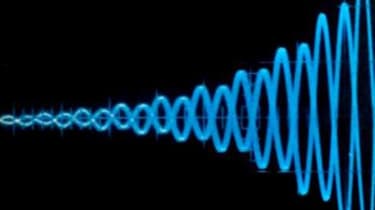
The chilling effect of “kraftwerk I/II” on sound sampling
Using even a two-second sound sample can infringe the related rights of the phonogram producer. Like the seven-differences myth 2 in the field of design, the rumor in the music world has been that a six-second sample is permitted. If it was not already clear that this is not the case, the German Federal Court of Justice, the Bundesgerichtshof, recently sent the six-second rumor off to the land of fairy tales. In its two rulings in “Metall auf Metall I/II”” (the cases are also known as “Kraftwerk I/II”) the German Federal Court of Justice clearly stated that any take-over of any sound fragment recorded in a phonogram - however small - can infringe the related rights of the phonogram producer. That means that the phonogram producer has what amounts to an absolute right to its sound recording and its investment in it enjoys maximum protection. Good news for the phonogram producers, bad news for users of sound samples. There has already been great to-do about sound sampling in the international music world. Here is an overview.
To sample or not to sample
Sound sampling is a special way of using music that takes and repurposes often small snippets of existing musical works and/or music recordings, other sounds, and/or voices in new music productions. The development of the technology has had great influence on the nature and extent of sound sampling. Where the equipment needed to sample was quite expensive well into the 1980s, newhardware and software has gradually appeared on the market that has made digital sound sampling quite a bit cheaper and easier. Today it is possible to sample from home - as they say - with one push of a button. The use of sound samples in new music productions has consequently increased, exponentially.
The reasons3 to use a sound sample vary widely. One obvious reason is to derive commercial benefit from the popularity of another’s music production. Other, perhaps less obvious, reasons for the use or reuse of fragments of music productions can include making a musical tribute to a particular artist, the parody of existing music productions, the up-dating of music productions, the artistic modification of fragments of music productions, combining specific samples together into new music productions, and to lend a new music production an aura of authenticity with the aid of fragments of original music productions.
Read the article English article here!
Lees het Nederlandse artikel hier!
more insights
Het verbod op een dansstijl: bubbling op het zomercarnaval
In de aanloop naar het Zomercarnaval in Rotterdam ontstond de nodige commotie over het door de organisatie aangekondigde verbod op de dansstijl- en vorm bubbling. De organisatie van de straatparade verbood de deelnemers aan het Zomercarnaval ‘vulgair te dansen’. Daarbij werd de dansstijl- en vorm bubbling als voorbeeld gegeven.
06 March 2024
ReadKunstmatige intelligentie roept interessante juridische vragen op: zelflerende machines
Kunstmatige intelligentie oftewel Artificial Intelligence (AI) is nu al niet meer weg te denken. In het afgelopen jaar stond dit technologische fenomeen meer dan eens centraal in de mediaberichtgeving. Of het nu gaat over de duistere kanten van generatieve AI – ‘AI is een nieuw gevaarlijk wapen en vormt een existentiële bedreiging voor de mensheid’ – of de onbegrensde mogelijkheden van de toepassing van deze technologische ‘zelflerende machines’ bij het maken van creaties, AI gaat in onze mensenlevens een steeds belangrijkere rol spelen. In deze bijdrage voor Muziekwereld ga ik in op een aantal juridische aspecten van AI die met name voor de muzieksector van belang kunnen zijn.
06 March 2024
ReadSubsidies als smeermiddel voor festivalprogrammering: evenementenbeleid gemeente Amsterdam ter discussie
In mijn bijdrage aan deze subsidiespecial van Muziekwereld zoom ik graag in op een recent aangekondigde aanpassing van het evenementenbeleid van de gemeente Amsterdam die mogelijk ingrijpende gevolgen kan hebben voor de festivalmarkt. Niet alleen in de hoofdstad maar ook elders, als andere gemeenten dit voorbeeld gaan volgen. Waar de gemeente inzet op muzikaal-inhoudelijke bemoeienis met de programmering van festivals, vestig ik graag de aandacht op verstrekking van speciale subsidies als alternatief smeermiddel om tot hetzelfde resultaat te kunnen komen.
06 March 2024
Read